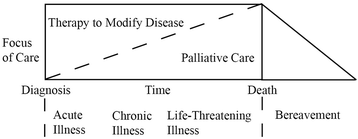TRANSCRIPTION OF PRESS CONFERENCE WITH DEFENSE ATTORNEY
8TH. FEB
Reporter - Were you pleased with the outcome of the probation decision in terms of allowing your client to keep on getting treatment?
Defense Attorney - I think we were most fortunate in getting one of the most compassionate, strong, judge's in the state of Massachusetts. He did the right thing and he has no compunctions whatsoever and to the very rational, organised order and I'm very grateful for that because she really needs that treatment.
Reporter - When the facts were laid out by the District Attorney - Can you speak about how that was presented?, because the way it was presented, the DA was minimising the mental health aspect and made it sound over and over again like this was premeditated, that there was clear thought, that she planned this by calling these different places and going on Apple map. Can you speak to that?
Defense Attorney - Yeah, I mean, she's a DA. She wants to put the case in the light most favourable to the Commonwealth and whatever inferences she can draw. I think it shows a lack of understanding or appreciation of the serious nature of postpartum psychosis, postpartum depression and the SSRI's suggesting that 'Oh she was able to communicate with her mom and send her a text and hope you had a nice ride' minimises or shows that she was not in the throws of suicidal ideation or god forbid homicidal ideation, or depression, unable to sleep, insomnia which was a complaint brought many times to the doctor's attention so I certainly don't fault the DA for presenting her case like that. I'm glad the judge was able to understand what the real issues are.
Reporter - So she was able to function and make those phone calls and make that (
inaudible) - You're saying that doesn't mean that she wasn't suffering?
Defense Attorney - Of course, she would not lose... you don't lose the ability to understand that this is a cell phone and I'm going to shake hands with this person or I'm going to get in a car and drive. I mean, it's not like you're in a total stupor, you know?
Reporter - What is her diagnosis?
Defense Attorney - As far as her medical condition?
Reporter - Her mental health and her physical condition?
Defense Attorney - It's still being evaluated, that's Dr. Paul Zeizel, who is a forensic psychologist. He's been with her for the past three days, so that's still being investigated.
Reporter - Can you describe her condition right now?
Defense Attorney - Very sad affect, she can't move, as you heard in the courtroom. She's confined to the bed. She has to have 24/7 care, for obvious reasons. She has no feeling from the naval down and emotionally there's a very significant risk of suicide. They have to have a person sit in the room, as you heard and watch her 24/7, so it's not good.
Reporter - Do you have a hope that a plea agreement could be reached? Would that be the best way to dispose of this case?
Defense Attorney - I certainly do, I'm hoping that Tim Cruz, who's a former defence attorney and DA for a long time, would be able to understand that this is just a tragic case that really should be resolved without the fanfare of a trial and the emotion.
Reporter - What would be a fair plea?
Defense Attorney - That would be a matter of negotiation.
Reporter - Prosecution was talking about the medical history, that some had said she did not have postpartum depression, that she had no symptoms....
Defense Attorney - I gotta say, she saw one doctor and there was an evaluation, I don't know for how long, I don't know for how in depth, I don't know what the facts were as far as that. And at that point, the DA said that the doctor said that it did not appear to be postpartum depression, even though she may have been posting on Facebook, about a month or so prior to this indicating that she felt that she was anxious and depressed because of postpartum.
Reporter - What was her diagnosis at the clinic? What were they treating her for?
Defense Attorney - I'm getting the records and that's, you know, under investigation.
Reporter - What liability do doctors and pharmaceutical companies have in this case?
Defense Attorney - There's three dead children right now and a young woman, who was a beautiful woman who's confined to her bed and a husband who's a walking shell of a human being. And I really don't want to talk about money losses at this point.
Reporter - How many medications was she taking at the time?
Defense Attorney - Around 12, but they were 4 at a time, they would stop, get her off it, get on the sertraline antidepressant. They put her on the Prozac and then take her off the prozac and put her on the amitriptyline. That's what was happening.
Reporter - Does Dr. Zeizel want to say something about his impressions of Lindsay?
Dr. Zeizel - I've been meeting with Mrs. Clancy for the past few days and multiple hours each day. What I can say, without going too far, is that her affect is absolutely flattened, She's in a very surreal state. It feels dreamlike to her, as she's described to me on multiple occasions. And individuals who can present as being lucid and linear and clear thinking do not make those people not mentally ill. They have the capacity for, on occasion, to be able to do things that they've been doing for a long period of time. When you have delusional thinking. fixed beliefs that are unchangeable and hallucinations, namely command hallucinations, telling you to do things, telling you to do things that are malevolent and you believe those voices that are telling you, you need to follow what they say that's when things go downhill, behaviourally, psychiatrically and familiarly and that's what we see in the most tragic of cases where individuals who could be healthy and normal and, quite frankly, because they're paranoid and worried about what others think, they hold back on what they share. And in some cases throughout the country in the world, these are people who one day will be functioning well, but because they have the onset of command hallucinations, which they adhere to, and they believe the voice that they have to do something, that's when tragedy occurs, and I think that, sort of, is under the override rule break that this case falls under.






